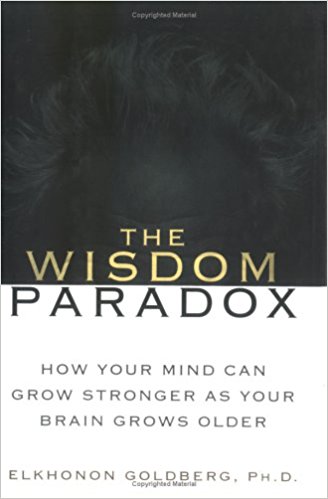We hope you love the books people recommend! Just so you know, The CEO Library may collect a share of sales or other compensation from the links on this page.
This book has 1 recommendation
Nassim Nicholas Taleb (Flaneur)
If you like the thinker's prose, the so-called "romantic science",a style attributed to the Russian neuroscientist A. R. Luria,which consists in publishing original research in literary form, you would love this book. Clearly intellectual scientists are vanishing under the weight of the commoditization of the discipline. But once in a while someone emerges to reverse such setbacks. Goldberg, who was the great Luria's student and collaborator, is even more colorful and fun to read than the master.
He is egocentric, abrasive, opinionated, and colorful. He is also disdainful of the conventional beliefs in neurosciences --for instance he is suspicious of the assignment of specific functions, such as language, to anatomical regions. He is also skeptical of the journalistic "triune" brain. His theory is that the hemispheric specialization is principally along pattern matching and information processing lines:the left side stores patterns, while the right one processes novel tasks. It is convincing to see that children suffer more from a right brain injury, while adults have the opposite effect. There is a little bit of open plugging of Goldberg's for-profit institute;he would have gotten better results by being subtle.
A fre minor points. I did not understand why Goldberg discusses "modularity", of which he is critical, as if it were the same thing in both neurobiology and in cognitive science. In neurobiology, modularity implies regional localization, while cognitive scientists (Marr, Fodor, etc.) make no such assumption: for them it is entirely functional and they would be in great agreement with Goldberg. Also I did not understand why he attributes the language instinct to Pinker, not Chomsky, and why he makes snide remarks about behavioral scientists like Kahneman and Tversky. But these are very minor details that do not weaken the message (I still gave the book 5 stars). I am now spoiled; I need more essays by opinionated, original,and intellectual, contemporary scientists.
Amazon description
The Wisdom Paradox explores the aging of the mind from a unique, positive perspective. In an era of increasing fears about mental deterioration, world-renowned neuropsychologist Elkhonon Goldberg provides startling new evidence that though the brain diminishes in some tasks as it ages, it gains in many ways. Most notably, it increases in what he terms “wisdom”: the ability to draw upon knowledge and experience gained over a lifetime to make quick and effective decisions. Goldberg delves into the machinery of the mind, separating memory into two distinct types: singular (knowledge of a particular incident or fact) and generic (recognition of broader patterns). As the brain ages, the ability to use singular memory declines, but generic memory is unaffected—and its importance grows. As an individual accumulates generic memory, the brain can increasingly rely upon these stored patterns to solve problems effortlessly and instantaneously. Goldberg investigates the neurobiology of wisdom, and draws on historical examples of artists and leaders whose greatest achievements were realized late in life.
Get this book on Amazon | Barnes & Noble | Book Depository | iBooks




